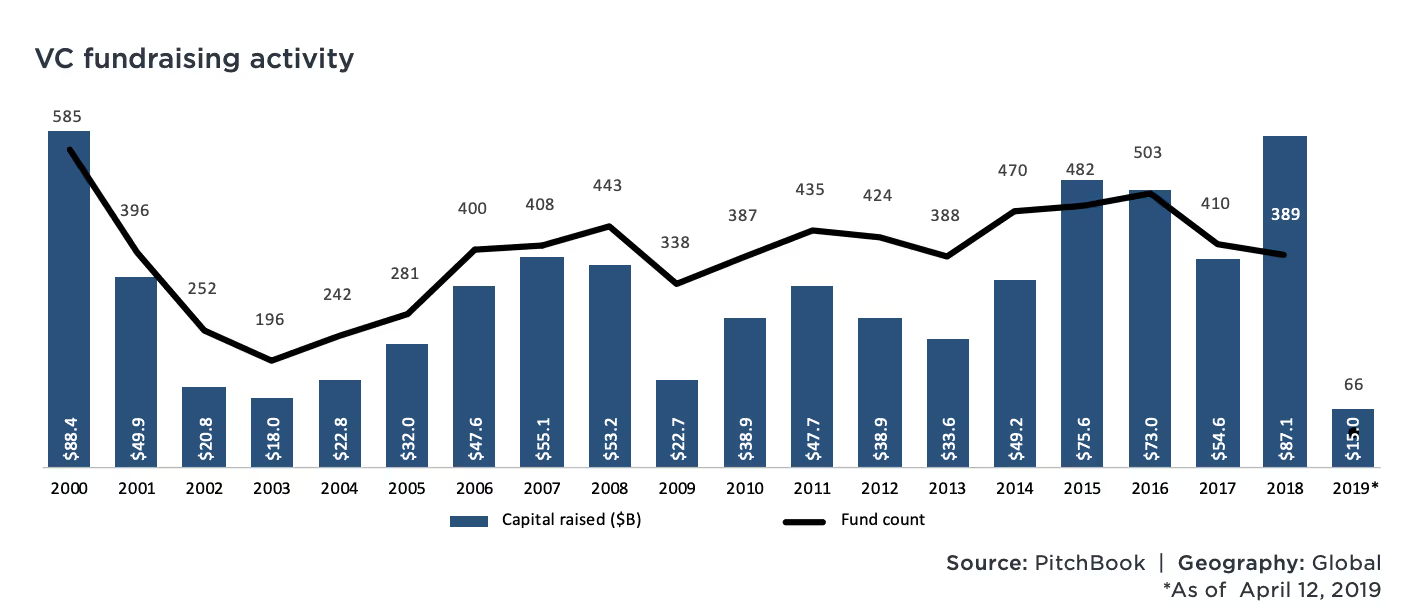Prophecies of Recession: Why VCs should be prepared
.avif)
The tragic tale of Cassandra is a classic of Greek mythology. The priestess was gifted with the ability to predict future events, but fated to have her catastrophic prophecies never be believed by those around her.
One might argue that the ‘Cassandras’ of today’s market – the doomsayers who have been predicting recession this year – are experiencing the opposite of the Trojan priestess. The catastrophic near-future they warned about may actually not come to pass, though many people have paid their words heed. In turn, the economic analysts who have predicted a ‘soft landing’ after last year’s market turmoil have a decent chance at being right.
Regardless, the forecasts of optimists and pessimists alike are not bound by the divine intervention of an ancient Greek deity. While the odds of something akin to a “soft-landing” look increasingly rosy, an economic contraction remains a real possibility. VCs should still prepare for the risks – and understand the opportunities – of a potential recession.
A recession would pose several serious challenges to VCs. Funding sources will become scarcer as LPs become more discerning. Capital raised by funds practically halved after the Dot-Com bubble and the Great Recession, dropping from $88.4B to $49.9B after 2000, and $53.2B to $22.7B after 2008. A tighter capital market lowers both the total volume of VC investments and the valuations of startups. (We’ll come back to that.) Interestingly, late-stage valuations also seem to take more of a hit in the wake of an economic contraction relative to early stage valuations.

A recession would additionally see increasing pressure on VCs’ portfolio companies. A greater percentage will fail. Other portfolio companies may turn to VCs for additional capital as alternative funding sources and exit opportunities dry up. Exits themselves, whether through IPOs or acquisitions, will take longer to materialize. According to IMAA, annual M&A value decreased by $337B, and transactions dropped by over 2,200 M&A deals, after 2008.

Capital is not the only thing that would be stretched thin: a recession would also necessitate increased time and resource commitment on individual portfolio companies from VCs. These effects may not be immediately palpable; at the beginning of a recession, VCs would retain significant “dry powder” and have the need to deploy it. A squeeze would be inevitable though – however delayed.

That being said, it’s not all doom and gloom. Recessions present unique opportunities for the VC industry. We mentioned lowered startup valuations earlier; an economic contraction is the perfect time to snatch up great investments for bargain prices. Downturns also spur innovation, providing VCs the opportunity to invest in startups that are upending the status quo in disrupted markets.
Perhaps one of the most significant upsides of a recession for VC relates to hiring. A bad job market could fuel a movement of top talent to portfolio companies. There’s also the fact the jury isn’t fully out on just how bad a recession is for VC. In the wake of the Dot Com bubble, VC firms posted some of their worst returns ever. The same is not true after the 2008 recession, which seemingly supercharged VC performance in the U.S. (see table below).

How, then, to capitalize on a potential downturn? VCs should include three key considerations in their approach:
- Market share matters
Weaker and smaller companies can’t ride out the recession; market leaders can. Find companies that you think will thrive in an increasingly “winner-takes-all” market.
- People are crucial
VCs need a strategy to aid their portfolio companies in acquiring talent during a recession. Proactively nurture and leverage your networks.
- Stay active, stay alert
Recessions inspire disruption. Uber, AirBnB, Square, and many other successful startups were all founded in the wake of 2008, supercharging fund performance. VCs should be careful not to be overly conservative during a downturn; opportunities abound.
– –
As some tell the story, Cassandra’s words fell on deaf ears not only as the result of a divine curse. Her predictions of catastrophe were also deeply troubling; who would want to believe them? This echoes the real world. We can hope the macroeconomic Cassandras – and their prophecies of a looming recession – are wrong. They may very well be. If they are right, however, VCs should be ready.
Cole Crosby is an intern at Hetz Ventures and current student at Princeton University.


.jpg)